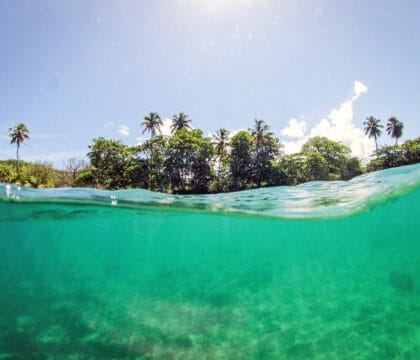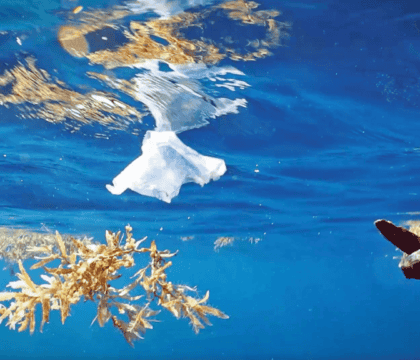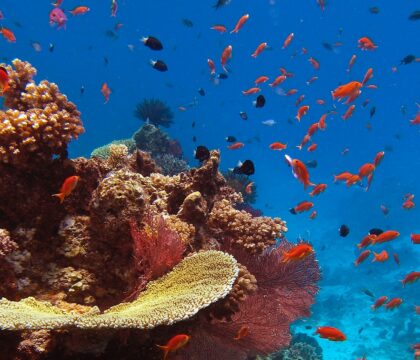October 19, 2020 • Blue Habits Tips
Through our Blue Habits program, we aim to not only motivate ocean-friendly behaviors, but also to foster a growing community of people who are working to improve ocean health through their daily actions. Part of supporting that community involves both understanding what actions people are already taking to support healthier oceans, as well as sharing ideas and challenges amongst each other and with the broader world.
To help achieve those goals, we’ve created polls in each of our focus areas (e.g. plastic pollution, sustainable seafood, climate change, and sustainable travel) to hear about what our community members are currently doing, what they’d like to do more of, and what challenges or barriers they most often face.
Today, we are sharing responses to our poll about reducing plastic pollution.
How You Are Reducing Plastic Pollution — Your Poll Responses
Q1: What actions do you currently take to reduce plastic use?
Nearly all (92%) of our community members report that they are using a reusable water bottle instead of buying single-use plastic bottles, and a large majority say that they also use reusable shopping bags (88%), and reusable containers for food (80%). Almost half bring their own mugs to cafes and remember to bring reusable utensils or straws opposed to using plastic cutlery.
Q2: What actions would you like to incorporate into your daily life?
Our community members’ responses also show that nearly half of them want to take additional actions such as remembering to bring a reusable mug to cafes and carrying reusable utensils. Many of our users reported that they are already doing these behaviors but want to be more consistent and diligent with them.
Beyond the actions listed above, community members also reported that they are interested in taking other actions, such as:
- Relying less on recycling and using less plastic all together
- Being more thoughtful and mindful about personal actions regarding plastic use
- Helping educate others
- Buying less packaged food and materials
- Getting involved in cleanups
Learning more about legislation banning plastics and voting
Q3: What barriers do you face in reducing plastic use?
Our third question received a wide range of answers that fell under similar categories or themes. We put answers into a word cloud to see what stood out the most:
Many of the responses we received to this question had to do generally with personal habits, inconveniences, actions (or inaction) by other people, and bigger systems at play. For example, some responses mentioned the act of forgetting a reusable bag at home or their mug for the cafe; others focused on everyday challenges as a consumer and the overall difficulty in avoiding single-use plastic from food packaging, online orders, takeout food, and more. Other answers highlighted the lack of concern, motivation, or education among other people or businesses, or even limited access to proper waste management outside of their homes.
How Can I Help?
It can feel overwhelming, if not impossible, to completely avoid plastics when they are seemingly everywhere we turn. Our advice is to do your best, try to make small improvements based on where you are, and ditch the shame. Avoid single-use plastics wherever and whenever you can, and reuse them when you can’t. Talk to other people about what you are doing and why it matters to you. Through those conversations you may find support, ideas, or the opportunity to help someone else get involved in the growing movement to stop ocean plastic pollution. The bottom line is that single-use plastics are deeply ingrained into our society and everyday lives—small, consistent efforts that build over time are needed while we also continue to push for large-scale systemic changes to reduce plastic pollution.
The good news is that more and more people are more joining the movement to reduce their plastic footprint. For more tips to address some of the everyday challenges in fighting plastic pollution, join our 7-Day Fight Plastic Waste Challenge.




